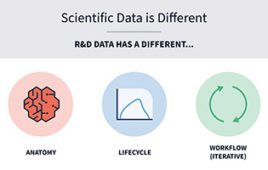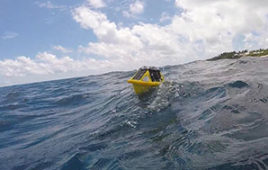Life in extreme environments paves the way for international collaboration
Life thriving in deserts, the Polar Regions and the deep sea is the focus of a report released today by the CAREX project, involving over 200 international scientists. The CAREX (Coordination Action for Research Activities on life in Extreme Environments) roadmap outlines priorities for future research into life in extreme environments, giving the basis for international collaboration.
Life has evolved thousands of strategies to adapt and thrive in harsh conditions. Studying microbes, plants and animals in these tough environments could help answer some of the most fundamental questions about the origins of life on earth, and the search for potential extraterrestrial life. It also offers a rich resource for addressing challenges such as improving food production, understanding the impact of climate change and finding new medical or biotechnological products. Biotechnology advances inspired by the adaptations found in extreme environments have already improved processes in industries such as pharmaceuticals and water treatment.
“This research is time-critical. Life in many of these environments is sensitive to the environmental changes we are seeing across the world,” said Dr Cynan Ellis-Evans from the British Antarctic Survey, who chaired the report. “Research on life in extreme environments is a meeting point for a wide range of scientific communities. Our roadmap is a critical step towards closely coordinating these specialist fields, and for identifying the technological developments we need to help us to access these harsh and often remote environments and unique organisms.”
The CAREX roadmap selects four high-level research themes:
- Stressful environments – responses, adaptation and evolution
- Life and habitability
- Biodiversity, bioenergetics and interactions in extreme environments
- Contributions of life in extreme environments to biogeochemical cycles and responses to environmental change
The CAREX roadmap presents a solid scientific consensus by a large community of researchers studying life in every type of extreme environment. The priorities also form the programme of this year’s CAREX conference in Dublin in October, providing researchers the opportunity to discuss and present the state of the art and the latest developments on research on life in extreme environments.
Linking biodiversity, ecological theory, evolutionary biology and biogeochemical cycles, research on life in extreme environments requires specialised methodologies, sophisticated equipment, complex, expensive infrastructure and access to remote areas. These needs help push forward cutting edge technology development. The roadmap includes an analysis of the research facilities, infrastructure and the enabling technologies required, as well as recommendations for outreach and education. The CAREX Coordination Action is supported by the European Commission Seventh Framework Programme (FP7). The project is coordinated by the British Antarctic Survey and managed by the European Science Foundation. Other consortium partners include: CNRS (France), CNR (Italy), DLR (Germany), Ifremer (France), the Academy of Sciences of the Czech Republic, INTA-Centro de Astrobiologia (Spain) and MATIS-Prokaria (Iceland).
Download the CAREX roadmap: www.carex-eu.org




